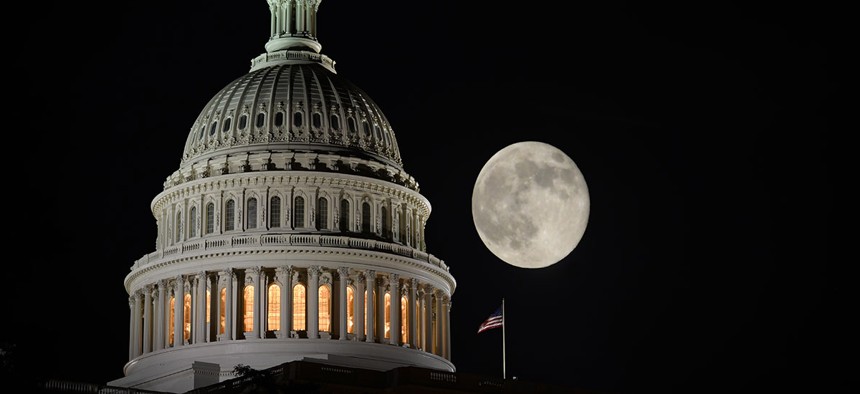
Shutterstock.com
Congress Ignores Trump's Priorities for Science Funding
Nearly every science agency stands to get more money under a spending bill that avoids proposed cuts from the White House.
When President Donald Trump was sworn into office, much of the science community braced for the worst. Trump had long shown a stubborn disregard for any scientific knowledge that differed from his beliefs. Many scientists wondered what havoc the new president, empowered by a Congress controlled by Republicans, might wreak on the policies that affected their work.
Trump first announced his funding priorities for 2018 in March of last year, and it was just as many researchers had feared. His administration’s proposal called for significant boosts in military and border-security spending and historically large cuts for science and health agencies, particularly the Environmental Protection Agency and the National Institutes of Health, and climate-research programs across the government.
Congress ignored those priorities as it negotiated funding for fiscal year 2017, declining to get a head start on the president’s cuts. The federal spending bill passed and signed into law by Trump last May didn’t include significant cuts to science, technology, and health agencies, and even provided some substantial increases to some.
Now, the same thing has happened again.
This week, Congress passed a $1.3 trillion spending bill for fiscal year 2018—months after it actually started, but that’s another story—that ignores many of the cuts the White House recommended last year. Instead, nearly every science agency will receive more funding than before. In addition, total federal spending on research and development will “reach its highest point ever in inflation-adjusted dollars,” according to a report by Matt Hourihan, the director of the American Association for the Advancement of Science’s R&D Budget and Policy Program.
By early Friday morning, both chambers of Congress had signed off on the bill, hoping to avoid the looming government shutdown. The White House initially said Trump would sign it, but Trump tweeted several hours later that he was “considering a veto” of the bill over what he said was lack of funding for immigration and border-security policies. By Friday afternoon, Trump did indeed sign the spending bill into law.
For the science community, the new law isn’t just a good budget. It’s a great budget. Many advocates for science and research had been holding their breath since Trump made his budget request, waiting to see whether Congress would support his administration’s vision. They marched in Washington and prepared to run for office. As the 2018 spending started circulating this week, they seemed to exhale, taking to social media to thank lawmakers.
Thank you to Congress for strong support of science in the FY2018 budget! Increases NASA science by 7.9%, restores Earth science missions and fully funds WFIRST. Congress "rejects the cancellation of scientific priorities recommended by the NAS decadal survey process."
— David Spergel (@DavidSpergel) March 22, 2018
Thank you Congress for increasing federal science funding in the new budget!https://t.co/4ukj0O9gxw
— Jena Johnson (@MicrobesMins_UM) March 22, 2018
Thank you Congress for listening to us! #Bipartisanship makes all the difference to science researchers and benefits the citizens of our nation and the world #scicomm #MakingOurCASE @RogerMarshallMD @SenPatRoberts @JerryMoran @KState_RSCAD https://t.co/KptplmUjJu
— Victoria Fitzgerald (@fitzofscience) March 22, 2018
Congress ignored Trump’s proposals for cuts in a number of other policy areas, too, because they’ve decided to spend more on pretty much everything, as my colleague Russell Berman has reported. In February, in a rare bipartisan move, congressional leaders approved a two-year budget agreement that calls for an increase of about $300 billion in overall spending. “Congress increased the size of the budgetary pie and nearly everyone got to grab a bigger slice,” says Casey Dreier, a the director of space policy at the Planetary Society, a nonprofit advocacy group.







